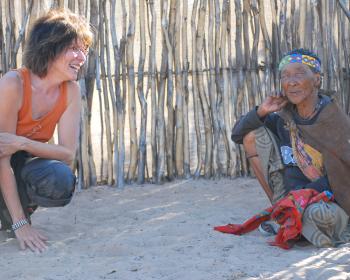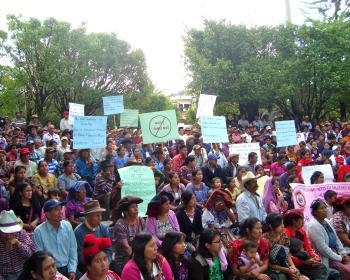Por Candela Palacios (Equipo de CS)
El Tercer Malón de la Paz. Una historia de reclamos al silencio.
Papá, dime otra vez, ¿por qué tuviste que ir tan lejos?
Esperábamos que así se escuchara por fin el reclamo por nuestra tierra, hijo mío.
Pero ¿la tierra no es ya nuestra?
Sí, hijo. Siempre lo ha sido. Pero algunas personas quieren que este hecho sea olvidado, como nosotros mismos lo hemos sido.*


